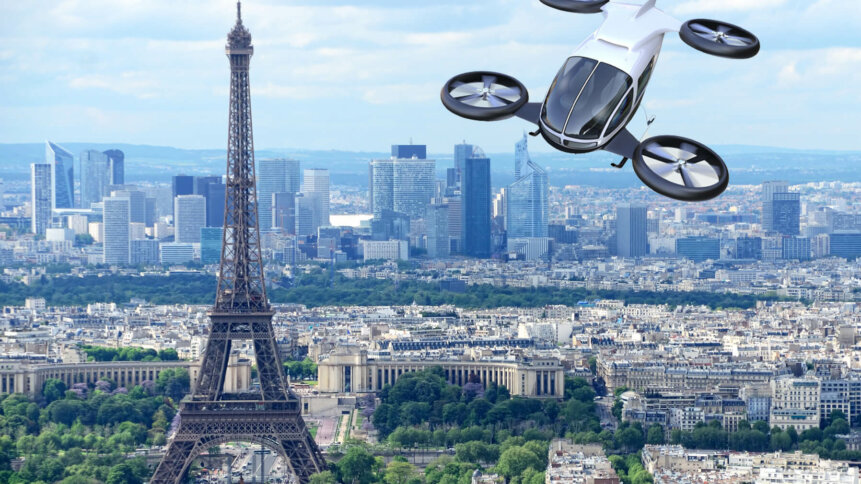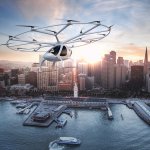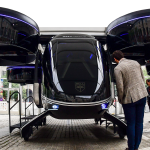Routes for electric flying taxis planned for 2024 Paris Olympics

- The flying electric taxis will have two routes — one route linking Paris-Charles de Gaulle and Le Bourget airports, while the other will be between two suburbs southwest of the French capital
- Volocopter GmbH, Airbus SE, Vertical Aerospace Group Ltd, Lilium NV, and Joby Aviation are among the participating firms working with France’s civil aviation authority
Anyone planning to attend the 2024 Summer Olympics in Paris, just might get the chance to be ferried around the city in an electric flying taxi. Aeroport de Paris said the country will begin testing electric air taxis in the coming months and create two dedicated flight paths to ferry passengers for both the Summer Olympics and Paralympics.
According to a recent statement from Aeroports de Paris, one route would link Paris-Charles de Gaulle and Le Bourget airports while the other would be between two suburbs southwest of the French capital. Among the aircraft developers that are a part of the project involving flying electric taxis are Volocopter GmbH, Airbus SE, Vertical Aerospace Group Ltd, Lilium NV, and Joby Aviation alongside France’s civil aviation authority.
The airport operator added that the landing and takeoff zones at the Pontoise-Cormeilles-en-Vexin hub were adapted for the tests earlier this year. “The main challenges for the development of this new technology regard acceptability, safety, and qualification of uses,” the statement reads.
Apparently, there have been a number of companies working on electric vertical takeoff and landing aircraft — known as eVTOLs. Aeroport de Paris said in September 2020, the structuring of a branch in the Île-de-France region around new urban air mobility (UAM) was initiated through the launch of a call for expressions of interest.
Approximately thirty manufacturers were selected to carry out tests on the following components: modeling and noise measurements, flight phases and integration into airspace, maintenance and recharging operations, passenger routes. The industry holds huge potential, with Morgan Stanley reporting in May that the eVTOLs could eventually grow to become a US$9 trillion global market.
For France in particular, the French Minister Delegate for Transport Jean-Baptiste Djebbari said the government is fully committed to the financing, with nearly €25 million already provided by the Council for Civil Aeronautics Research (CORAC) for the development of flying taxis, but also for the support of projects with the DGAC and the Agency for Innovation in Transport.
“Everything is falling into place: partnerships, innovation, test areas, regulations, financing. All the ingredients for success are there, all that remains is to make it happen,” he said. Aéroports de Paris SA Groupe ADP Chairman and CEO Augustin de Romanet said the Pontoise airfield “will function as a concrete experiment to explore the field of possibilities of a decarbonized and innovative aviation, and to develop the low altitude aviation market (below 300 meters), which has been largely unexplored until now.”
Overall, the eVTOL market in the last four years has grown dramatically, from a handful of companies to more than 150 worldwide, air mobility company Autonomous Flights CEO Martin Warner said. As expected, the biggest challenges eVTOL companies face is producing aircraft that are commercially viable that will pass regulations set by aviation operators










